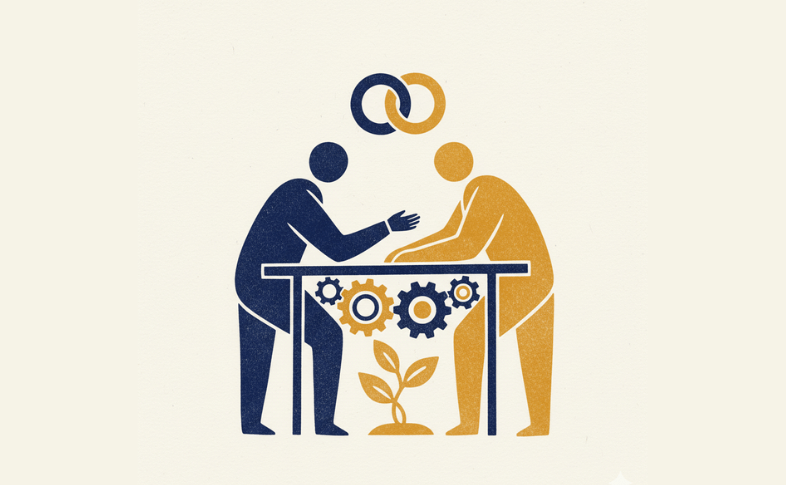Relationships are at the heart of how work gets done. People collaborate, share challenges, celebrate wins, and, inevitably, form personal connections. Most of the time, these relationships strengthen teams and build trust. But sometimes, they can blur boundaries, create perceptions of favoritism, or even lead to conflicts of interest.
That’s why having a clear Workplace Relationships Policy isn’t just good governance – it’s essential for protecting both people and the business.
Why Workplace Relationships Matter
Human connection is part of what makes work fulfilling. When colleagues communicate openly and support each other, it fosters creativity, inclusion, and teamwork. But close relationships – whether friendships, family ties, or romantic partnerships – can also create tricky situations if not managed with transparency.
For example:
- A manager dating a team member could raise questions about fairness in promotions.
- Family members working in the same department might create conflicts of interest.
- Even strong friendships can cause tension if others feel excluded or perceive bias.
Without guidance, these situations can erode trust, morale, and productivity. That’s where a well-structured policy makes the difference — by setting clear expectations for how relationships are handled professionally.
The Two Sides of Workplace Relationships
1. Professional Conduct and Everyday Interactions
The first part of any strong Workplace Relationships Policy should focus on how people treat one another, regardless of personal connection. It reinforces an organization’s commitment to respect, inclusion, and professionalism in all interactions — from boardrooms to chat messages.
This section usually covers:
- Core values such as trust, fairness, empathy, and integrity.
- Standards for clear, respectful communication.
- Procedures for resolving conflicts early and constructively.
- Zero tolerance for bullying, harassment, or discrimination.
When employees know what respectful conduct looks like – and when managers model it – workplace relationships naturally become more positive and resilient.
2. Managing Personal Relationships at Work
The second component deals with personal relationships that could affect work dynamics. This includes romantic or sexual relationships, family connections, and financial or business arrangements outside work.
These policies don’t aim to control private lives – they exist to manage conflicts of interest and ensure fairness. They typically require employees to:
- Disclose personal relationships that may affect work decisions.
- Avoid direct reporting lines between related individuals.
- Maintain professionalism and avoid public displays of affection.
- Treat former partners respectfully if the relationship ends.
Some organizations even use “love contracts” — confidential consensual romance in the workplace agreements confirming that both parties are entering the relationship voluntarily and will continue to act professionally.
Handling Conflicts with Fairness
A healthy workplace culture recognizes that conflicts will happen – and prepares for them. Policies should include formal and informal pathways for resolution, such as mediation or facilitated discussions.
Importantly, employees should always feel safe reporting a concern. Confidentiality, compassion, and fairness are critical to building trust in the process.
Making Policies Living, Not Static
Too often, workplace relationship policies are written once and filed away – only to be rediscovered when something goes wrong. But policies should be lived, not just written.
That’s where platforms like Way We Do come in. By embedding a Workplace Relationships Policy directly into a company’s workflow, the policy becomes part of daily operations – visible, actionable, and easy to follow.
In Way We Do, organizations can:
- Assign clear roles for disclosure, reporting, and conflict resolution.
- Add interactive flowcharts for managing potential conflicts.
- Set reminders for annual policy reviews and staff acknowledgment.
- Capture and version-control confidential disclosures or agreements.
Instead of being buried in a manual, the policy becomes a dynamic process that reinforces respect, communication, and accountability every day.
The Heart of It All
Workplace relationships are a natural part of human collaboration – but professionalism is what keeps them productive and fair. With the right balance of empathy and structure, organizations can foster connection without compromising integrity.
When people understand the boundaries, respect each other’s roles, and trust the systems around them, relationships become a strength – not a risk.
A clear, accessible Workplace Relationships Policy doesn’t just protect your organization; it helps it thrive.
Want to bring your Workplace Relationships Policy to life?
You can create a Workplace Relationships Policy directly in Way We Do (grab the template from the library), ensuring your team understands expectations, disclosures are managed appropriately, and positive culture remains at the heart of your business. Book a meeting to learn more.





